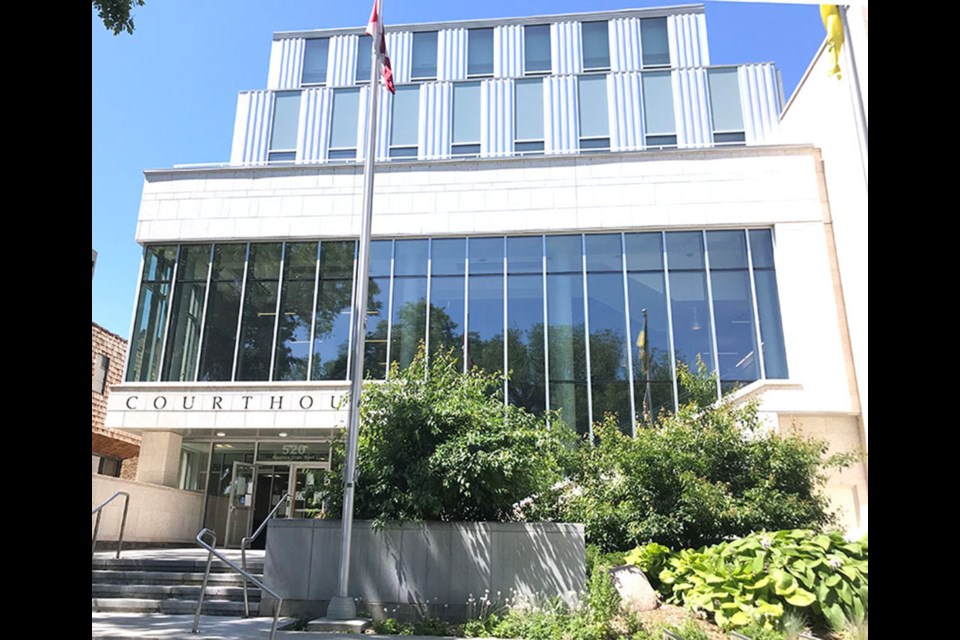SASKATOON – A constitutional challenge to the province’s COVID restrictions on outdoor protests was heard in Saskatoon Court of Queen’s Bench Wednesday.
Justice Daniel Konkin reserved his decision on the charter challenge to a later date yet to be determined.
Constitutional lawyers Marty Moore and Andre Memauri from the Justice Centre for Constitutional Freedoms based out of Calgary represented two anti-lockdown protesters who were ticketed for attending outdoor protests, which exceeded the province’s 10-person limit on outdoor gatherings.
Jasmin Grandel and Darrell Mills were each fined $2,800 for attending a peaceful protest in December 2020 at the Vimy Memorial in Kiwanis Park in Saskatoon against the government’s lockdown measures.
An affidavit filed by Grandel reveals that she is a young mother who attended to share her concerns with what she called the lack of transparency about the information the government used to base their restrictions, including requiring that her son wear a mask in kindergarten.
An affidavit filed by Mills shows that he is certified in Mask Fit Testing and trained in supplied air breathing systems. He told the court he attended the protests to voice his concerns about improper mask usage and the significant burdens placed on persons with physical or psychological conditions that prevent them from wearing masks.
Their legal challenge argued that prohibiting outdoor protests with more than 10 people violated the Charter’s freedoms of thought, belief, opinion and expression, peaceful assembly and association without justification. Moore and Memauri argued that restricting outdoor protests equally or more severely than public indoor gatherings, can’t be justified in light of the government’s numerous admissions that outdoor gatherings are safer than indoor gatherings. The weight of scientific data accumulated throughout 2020 confirmed that the risk of transmission of the SARS-CoV-2 virus at an outdoor protest was minimal, argued Moore and Memauri.
They argued that Grandel and Mills were targeted because there's no evidence that police issued tickets to anyone protesting non-COVID-related issues. They said Regina Police issued tickets to Grandel for numerous protests she attended in Regina, including protests with as few as 20 people in attendance. In contrast, on June 5, 2020, Regina Police Chief Evan Bray attended a large Black Lives Matter rally with hundreds of people and many other police officers, when the government’s 10-person limit for outdoor gatherings was also in effect. Moore and Memauri argued that protests in Saskatoon and Regina saw hundreds and sometimes thousands of people gather to protest against racism and in June 2020 - during a COVID-19 news conference - Premier Scott Moe noted that there had been “hundreds at the peaceful demonstrations in front of the Legislature.”
Lawyers for the Saskatchewan government agreed that outdoor gatherings present a decreased risk of transmission of COVID-19 compared to indoor gatherings but they said the risk of disease transmission is affected by many factors, including the ability and willingness of organizers and participants to adhere to public health guidance.
They argued that in the context of an unprecedented global pandemic and the worldwide death of millions, the impugned gathering limits were proportionate, and the pandemic required “many sacrifices” of many individuals and institutions in the interests of public health.
At the time the 10-person outdoor gathering limit was introduced in December 2020, Saskatchewan was into the second “phase” of the pandemic and the province was on a rapid growth trajectory, which indicated stronger health measures were needed to prevent illness and death and ensure that hospital capacity wasn’t overwhelmed, argued lawyers for the province.
They argued that the public health orders had their intended effect and the infection rate plateaued and fell slowly over the spring.
The 10-person gathering limit was in force until May 28, 2021, when it was repealed.




